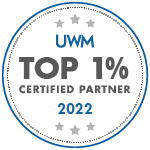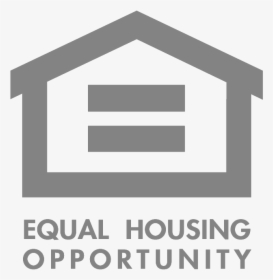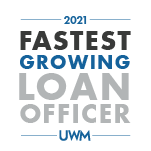How much should I save for a down payment?
Most people don’t buy a home with cash. Instead, they
save up as much as possible for a down payment, then
get a mortgage to cover the rest. How much depends on
the type of mortgage.
With a conventional loan, you may have to pay for
private mortgage insurance (PMI) if your down payment
is less than 20% of the home price. PMI can add several
hundred dollars to your monthly payment, but you can
remove it once your payments bring your contribution
to 20%.
Other types of loans have low or no down payment
requirements, and many states offer first-time home
buyer assistance programs to keep your costs down.
Have a question not listed here? Call us at 855-935-LOAN (5626) or email us at [email protected]
Should I get preapproved for a mortgage?
Definitely. Taking the time to get preapproved offers three
significant advantages:
• You’ll know exactly how much you can borrow, so
you can target your search.
• Sellers will see that you’re serious, putting you
ahead of the competition.
• Closing will go faster because you’ve already
completed most of the paperwork.
What is the mortgage interest rate?
The interest rate is a percentage of a loan that the lender
charges you to borrow money. But there’s more to the
story. A mortgage has an annual percentage rate (APR),
which is the interest rate plus any points, fees, or other
costs associated with the loan.
Have a question not listed here? Call us at 855-935-LOAN (5626) or email us at [email protected]
What are closing costs, and how much are they?
Closing is the last step in the homebuying process. It’s
when you sign the legal documents for your new home
and mortgage. Both the buyer and seller pay closing
costs to cover such expenses as the home appraisal,
property tax, title insurance, and mortgage insurance.
Your lender will list closing costs on your loan estimate
and final documents, so there won’t be any surprises.
What documents do I need to provide for a mortgage?
For most loans, lenders ask for:
2 years of tax returns
2 years of W-2 forms
30 days of pay stubs
Documents to show other income to be considered
2 months of bank statements
Investment portfolio statements
*FHA, VA, and other government-backed loans may have
additional requirements.
Have a question not listed here? Call us at 855-935-LOAN (5626) or email us at [email protected]
How can I get a lower mortgage rate?
- Raise your credit score. A higher credit score usually leads to a lower mortgage rate, which could save thousands of dollars over the life of a loan. Get a free credit report at annualcreditreport.com to check your score. Then, focus on paying bills on time, and don’t open new credit cards or use more than 30% of your current card limits.
- Save up a larger down payment. The more you put down, the less risk for the lender, so they’ll offer a lower rate.
- Choose a shorter loan term, like 15 years instead of 30. Make sure your budget can swing it because your monthly payments are higher with a shorter loan term.
- Pay mortgage points. You can pay extra money upfront in exchange for a lower interest rate. Typically, 1 point costs 1% of the loan amount and lowers the rate by 0.25%. It could be a good strategy if you have the money to pay for the points and plan to stay in the home long enough to recoup the costs (typically around 3 or 4 years).
- Lock in your rate. If you’ve been approved for a mortgage, a rate lock will protect your interest rate for 30 days or longer. If rates increase before closing, you’ll pay the lower, locked-in rate. Some lenders charge a fee for this service, so be sure to read the fine print.
How long will it take to process my
mortgage application?
It could take as little as 10 days to as long as 60 days. To speed
up the process, check and double-check that you submit
the correct financial and personal documents and respond
quickly to any lender requests.
Other factors that can cause a delay include a salary
change, new debt, or a change in marital status. If possible,
put your financial life in a holding pattern until you reach the
closing table.
Contact us today to discuss your next refinance, purchase or construction loan!
Parker Mortgage Group LLC is licensed to broker loans all over Michigan. Here are just a few of the cities where our mortgage company has provided mortgages: Ann Arbor, Chelsea, Jackson, Coldwater, Brighton, Novi, Plymouth, Dexter, Manchester, Birmingham, Farmington Hills, Farmington, Oak Park, Royal Oak, Hazel Park, Ferndale, Monroe, Lansing, Northville, Grand Rapids, Portage, Benton Harbor, Kalamazoo, Marshall, Dearborn, Troy, Adrian, Mt. Pleasant, Traverse City, Saline, Gaylord, Saginaw, Howell, Flint, Detroit, Shelby Twp, Port Huron, Mt. Clemens, Clarkston, Pontiac, Battle Creek, Westland, Cadillac, West Branch, Tecumseh, Ludington, Flushing, Charlevoix, Fenton, Petoskey, Holland, Canton, Muskegon, Midland, South Haven, St. Joseph, Bad Axe, Grass Lake, Owosso, Dearborn Heights, Clare, St. Clair Shores, Macomb, Madison Heights, Eastpointe, Gross Pointe, Warren, Clinton Twp, Sterling Heights, Rochester, Auburn Hills, Bloomfield Hills, Coldwater Lake, West Bloomfield, Livonia, Redford and Southfield.
Parker Mortgage Group LLC is an award winning mortgage company with extensive experience in providing our clients with the best mortgage to suit their home loan needs in Michigan. So don’t delay and contact us today!



